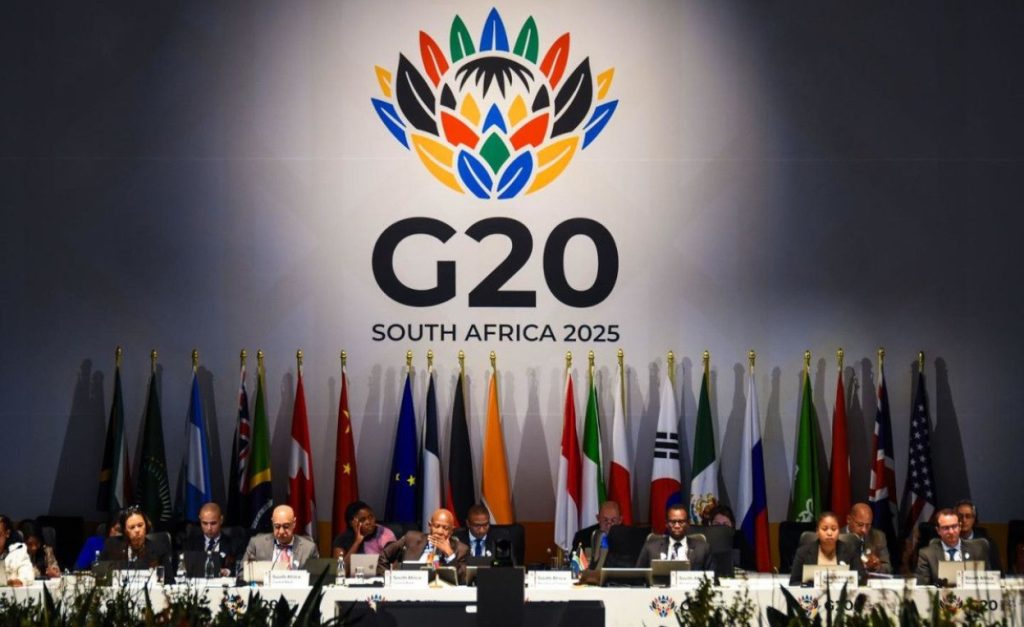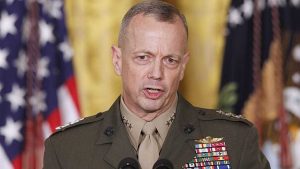Africa: What Africa Stands to Gain from the Historic G20 Leaders’ Declaration

Johannesburg — The much-anticipated first G20 Summit held on African soil concluded with world leaders adopting a sweeping declaration on the first day. This decision signals new momentum for global cooperation, despite the notable absence of U.S. President Donald Trump and Argentina’s opposition to the declaration.
“This summit has taken place at a crucial moment, as calls around the world grow louder for progress on the imperatives of our time: to end poverty in all its forms, to reduce inequality within and among countries, and to take urgent action to combat climate change,” said South African President Cyril Ramaphosa .
The 2025 G20 Summit, held in Johannesburg, marked a historic moment for the continent, not only because South Africa had the presidency for the first time, but also because the declaration firmly places Africa’s economic development, peace and security, and climate resilience on the global agenda.
“This year, we have recognised the growing debt burden faced by many developing economies as a major obstacle to achieving the Sustainable Development Goals. The G20 has pledged to extend support to low‑ and middle‑income countries as they confront debt vulnerabilities. Together, we must create a virtuous cycle of reduced debt, higher public investment, and more rapid and inclusive economic growth,” Ramaphosa said.
The declaration details that leaders acknowledge high levels of debt as a significant barrier to inclusive growth in many developing economies, hindering their capacity to invest in infrastructure, disaster resilience, healthcare, education, and other critical development areas.
They also expressed concern over the substantial increase in interest payments on total external public debt, which has more than doubled over the past decade for low-income countries (LICs).
According to Afreximbank, over half of African countries are either in debt distress or at risk of falling into distress, with more than half of Africa’s population living in nations that allocate more funds to servicing debt than to health or education.
In light of this debt crisis affecting many developing countries, leaders endorsed the G20 Ministerial Declaration on Debt Sustainability, improved the G20 Common Framework, and supported enhanced International Monetary Fund (IMF) – World Bank tools to mitigate debt vulnerability.
The summit also introduced the Finance Track Africa Engagement Framework (2025–2030) to ensure that African economies have a sustained voice in global financial discussions. If implemented effectively, these measures could lead to quicker and fairer debt restructuring, increased fiscal space for social and climate investments, lower borrowing costs, and better access to concessional finance for Africa.
To further strengthen the systems of these countries and promote equality, the declaration endorsed the High-Level Principles on Sustainable Industrial Policy, which emphasize manufacturing, digitalization, and job creation. Leaders also reaffirmed their support for the African Continental Free Trade Area (AfCFTA), small and medium enterprises (SMEs), and youth entrepreneurship.
Peace and Conflict Prevention
The continent continues to grapple with various insecurities that fuel ongoing conflicts, such as insurgencies in Mozambique, the Sudan crisis, unrest in the Democratic Republic of Congo, and instability in the Sahel. These issues have led to significant displacement and major humanitarian challenges.
The G20 leaders, through their declaration, issued a strong condemnation of attacks on civilians and called for renewed diplomatic efforts in global conflict zones, including Sudan, the Democratic Republic of Congo, and the Middle East.
They reaffirmed their commitment to the UN Charter, humanitarian access, and peacebuilding. This represents a shift, as Africa’s security priorities are now integrated into high-level global diplomacy, creating new opportunities for multilateral support.
Climate Action, Food Security, Global Health, and Pandemic Preparedness
The G20 convened immediately after the conclusion of the UN Climate Change Conference in Belém, which produced decisions reflecting both a collective desire for global action and increasingly polarized interests. The climate meeting focused on climate finance and how countries would fulfill the New Collective Quantified Goal on Climate Finance, adopted in Baku last year.
This includes scaling up public finance under Article 9.1 of the Paris Agreement. The Parties adopted the Mutirão decision, a Portuguese term meaning collective efforts, which recognizes the urgency of climate finance by establishing a two-year work program to ensure ongoing discussions about the implementation of the Baku commitment.
G20 leaders reiterated their commitment to the Paris Agreement and the 1.5°C temperature limit, emphasizing the need for climate investments, early warning systems, and nature-based solutions. If implemented effectively, Africa stands to benefit from increased climate finance, support for adaptation and disaster risk reduction, and technology transfers for renewable energy.
Food security, exacerbated by climate change and supply chain disruptions, was a key topic of discussion. The G20 endorsed the Ubuntu Approaches to Food Security, which aim to stabilize food prices and support smallholder farmers. Given that Africa imports a large portion of its food, it remains vulnerable to price shocks.
The commitments made could enhance agricultural investment and increase regional food production. On health, the declaration reaffirmed support for Universal Health Coverage and the development of a more resilient global health system.
“Thanks to investments in health over the past 20 years, global life expectancy has increased by more than six years, under-five mortality has dropped by more than half, and maternal mortality has dropped by more than 40%. In the same timeframe, at least 25 countries have moved from low-income to lower- or upper-middle-income countries. That’s no coincidence. Investments in health are investments in human capital, productivity, and economic growth,” World Health Organization (WHO) Director-General Dr. Tedros Adhanom Ghebreyesus said.
Leaders committed to strengthening WHO-led pandemic preparedness and supported the Global Fund’s 8th Replenishment, launched in Johannesburg. If the recommendations from the declaration are properly implemented, Africa could see improvements in primary healthcare, enhanced pandemic readiness, and increased funding to combat HIV, TB, and malaria.
“WHO thanks the G20 for its leadership on strengthening health security, but more needs to be done. And pandemics are not the only threat to the health of people and economies. So are noncommunicable diseases such as heart disease, cancer, diabetes, and communicable diseases, including HIV, TB, malaria, and vaccine-preventable diseases. Health is not simply an outcome of development; it’s the means,” Ghebreyesus said.
Critical Minerals, a Just Transition, and Artificial Intelligence
Leaders spoke of the importance of energy security, clean cooking solutions, renewable energy expansion, and climate resilience, mentioning Africa’s significant energy access gaps, with 600 million people lacking electricity and 1 billion without access to clean cooking solutions.
Key announcements included Mission 300, which aims to provide electricity to 300 million Africans by 2030, and a global initiative to triple renewable energy alongside the new G20 Critical Minerals Framework, designed to enhance value addition in producer countries. These initiatives are crucial for the continent, as Africa possesses 30% of the world’s critical minerals but captures little value from them. The new framework could facilitate industrialization and promote cleaner energy development.
The declaration also reaffirmed the transformative potential of digital and emerging technologies, including artificial intelligence (AI), to reduce inequalities and accelerate sustainable development.
Additionally, the summit showcased significant new initiatives aimed at fostering responsible AI growth, particularly in Africa. Leaders noted UNESCO’s creation of the Technology Policy Assistance Facility (TPAF) under South Africa’s G20 Presidency, intended to help countries develop effective AI policies informed by global expertise. In a notable step for the continent, the G20 welcomed the launch of the AI for Africa Initiative, a voluntary platform for collaboration between the G20 and the African Union.
This initiative advocates for increased access to computing power, investment in AI talent and training, improved digital infrastructure, and the availability of high-quality datasets across African countries.
“The G20 South Africa Summit Leaders’ Declaration is more than words – it is a commitment to concrete actions that will improve the lives of people in every part of the world. Our agreement on a declaration during this summit demonstrates the value of the G20 as a forum that can facilitate joint action on issues of shared concern.
More than that, it reaffirms our renewed commitment to multilateral cooperation and our recognition that our shared goals outweigh our differences. Together, we must accelerate progress towards the 2030 Sustainable Development Goals and the Pact for the Future,” President Ramaphosa remarked.
The next G20 Summit will be held in the U.S. after South Africa was unable to transfer the presidency officially. This decision followed the Trump’s administration’s boycott of the two-day meeting,
By allafrica



